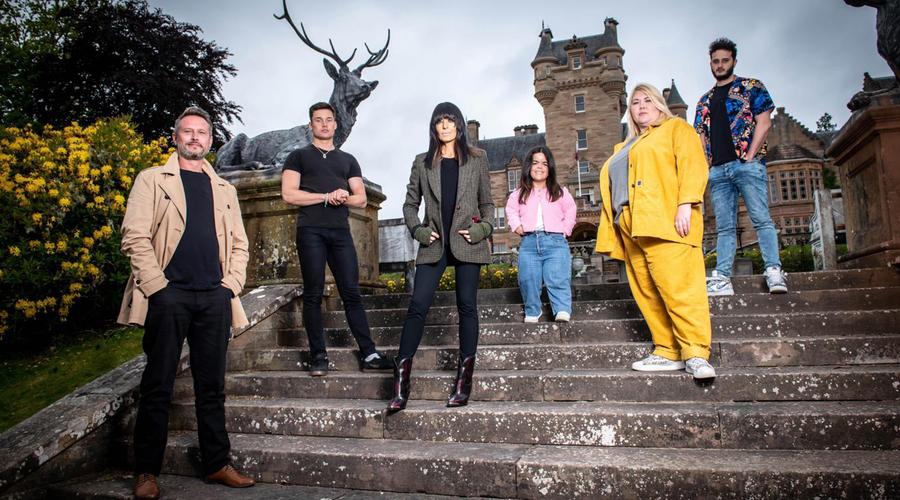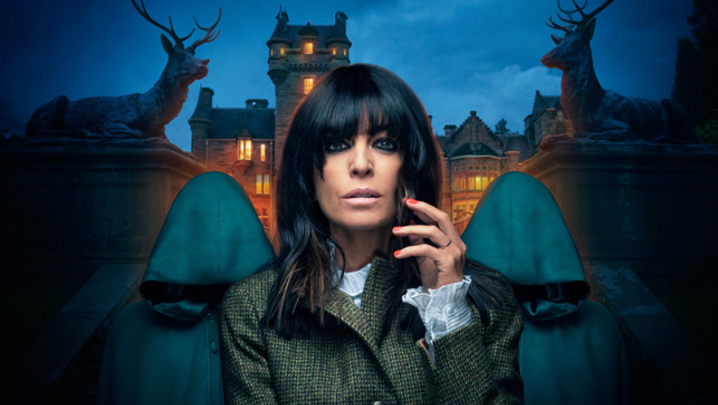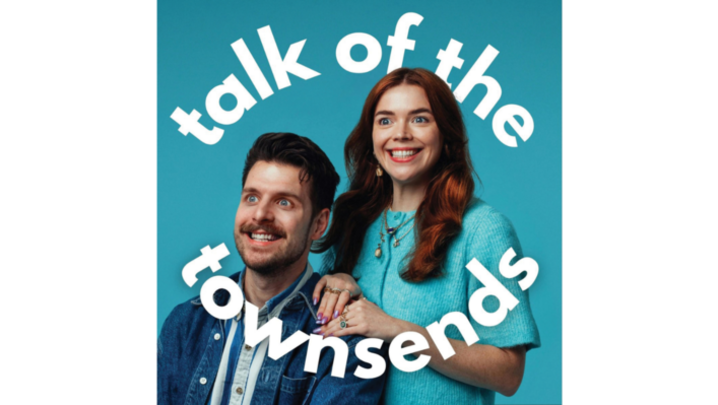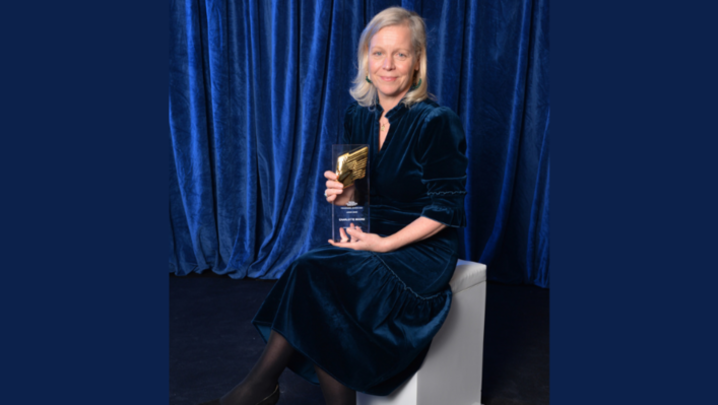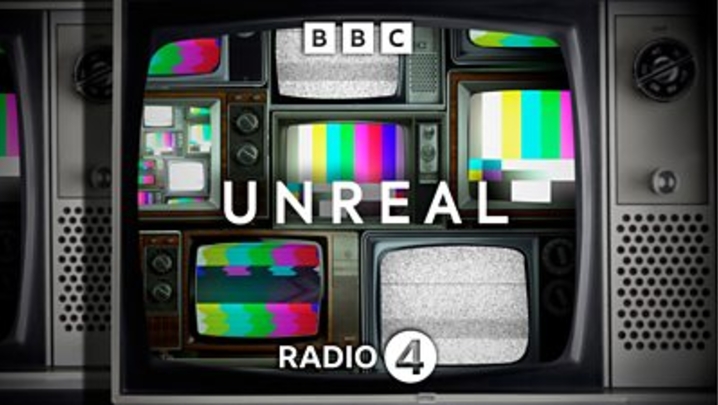The Traitors and The Piano are winning big audiences. Caroline Frost wonders what makes them special – apart from sharing the same presenter
While everyone continues to remark on the so-called golden age of drama on TV, a growing number of constructed factual shows have been quietly grabbing huge audiences and winning awards.
Fresh off the block, The Traitors – effectively a game of “wink murder” writ large in a spooky Scottish castle, with Claudia Winkleman presiding – won at the RTS Programme Awards and the British Press Guild Awards, as well as grabbing two Baftas.
It is made by Studio Lambert, which also drew huge audiences for season 3 of the BBC’s Race Across the World. In the latest series of the latter, competing couples try to be first to cross from one side of Canada to the other without an aeroplane, for a cash prize.
Meanwhile, Love Productions, maker of The Great British Bake Off, has another hit on its hands with The Piano, a heart-warming showcase of diverse musical talent filmed in train stations around the country. Once again, Winkleman is in the cab, with professional “observers” Lang Lang and Mika on hand to arbitrate.
How can we explain this trend? One reason is economics. Michael Jochnowitz, BBC Commissioning Editor for Popular Factual and Factual Entertainment, says: “Drama has become a lot more expensive to make – three or four times the price of a factual show. As broadcasters, if you see certain shows delivering similar or stronger audiences, that’s part of the current appeal.”
The US writers’ strike will inevitably encourage broadcasters and streamers across the Atlantic to commission more reality fare. But there is no doubt that the ideas must be strong and distinctive. Race Across the World started out with the title “Walk the Line”. The idea was that people had to get to their destination in as straight a line as possible (inspired by Burt Lancaster’s character in the film The Swimmer).
Executive producer Tim Harcourt reveals that it went through several iterations before it found its legs. “We kept saying it’s not a race until, eventually, we said: ‘Why not make it a race?’ The BBC got behind it and, for a while, it was called ‘Flightless’ – with a strong, environmental message.
“We almost made it with celebrities, but backed away from that. We decided to film in a documentary style because we knew it had to feel real, and make viewers ask: ‘What would I do if I were in that situation?’” Episode 1 of series 3 drew an audience of 6.3 million people.
The Traitors was adapted from Dutch format De Verraders, which had done very well in the Netherlands with celebrities taking part. “We stuck to our guns with this one,” says Harcourt. “It was a real game playing out in the real world, and the stakes would be higher with ordinary people involved.
“We wanted relatability and the stakes to be high. Plus, once we found our amazing castle, we leaned into the Scottishness, and that led to some of the games and the feel of it – something for Claudia to have fun with.”
If there is a special sauce, perhaps it is Winkleman, whom Harcourt credits for a fair proportion of The Traitors’ big audience: 3.2 million tuned in for the series finale. “She brought warmth and humour. It could have seemed overly pompous and macabre, or silly and trite, but she managed to walk that line between the two.”
Richard McKerrow, executive producer on The Piano, agrees that Winkleman is a singular talent. “She cares about people and can bring them out. It’s important to have an MC who gives an accessible frame to viewers, who might not be interested in the technical side of things. She lights up the screen.”
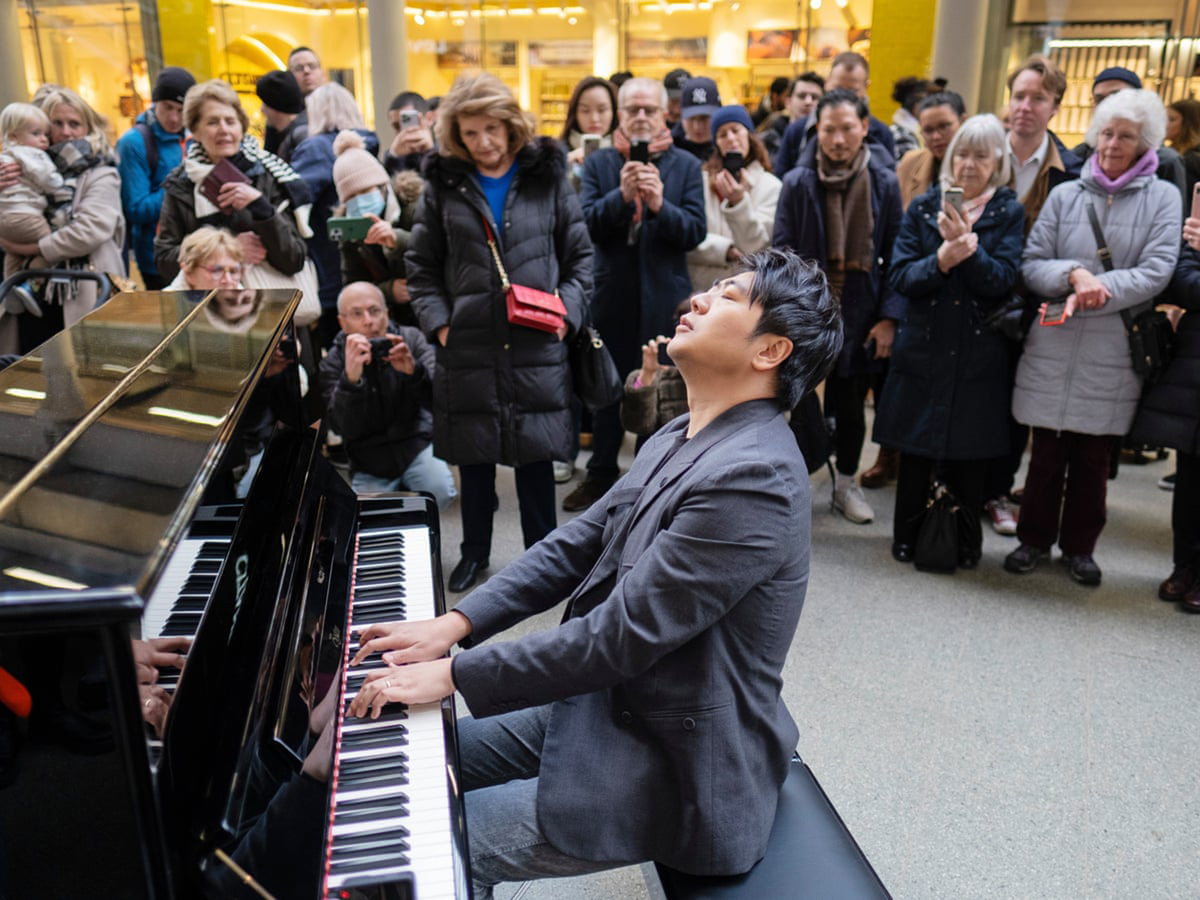
The Piano came out of a chat between McKerrow and Channel 4 content boss Ian Katz, both of whom, it transpired, were learning to play the instrument. “We started filming people who played the public pianos in documentary style. A lightbulb moment was: ‘Maybe we can hide the judges?’ There is a grammar of television you have to respect and obey, but this felt new and different.
“Then, as we were making it, we tried to make the language more original, less competitive reality and more of a celebration.”
The huge audience numbers – more than 1 million streams on Channel 4 (formerly known as All 4) – accompany a refreshing critical appreciation for what McKerrow doesn’t like to call reality TV. “It’s always been used in such a derogatory sense,” he says. Perhaps it should be called constructed factual. “It has been a golden age for scripted TV,” he reflects, “and harder for unscripted ideas to break through. It becomes increasingly hard to create breakthrough shows but, hopefully, we’ll do it.
“Young people are the true test, as they have so many things to watch, and there are so many competing mediums. The onus is on us producers to make the shows better and better, but why shouldn’t we?”
Harcourt agrees. “They’ve found a new punch. Streamers have invested a lot in British-made reality TV and helped the industry grow. ‘Reality’ used to be a bit of a dirty word 20 years ago, but I think people now see it for the fun it is.
“They’re terrifically overwrought gameshows, played out as human theatre. But it’s not enough for the show to be good, you need all the elements to line up for a hit. For something to really pop, it’s still terrifically hard.”
Jochnowitz adds: “Audiences are more sophisticated. We [producers] need to be smarter. Sometimes, if viewers know it’s an out-and-out gameshow, they’re far more accepting of rules of engagement. With Race Across the World, there’s a realness and authenticity – you can’t overproduce it, you have to respect the audience.”
Apart from ensuring Winkleman’s involvement wherever possible, there seems to be not so much a special sauce to achieve a hit as a magical combination of elements.
Jochnowitz describes the different layers on which Race Across the World works: “It’s an adrenalised gameshow, it’s an emotional journey for our contestants, or it’s a travel show, enjoyable for some purely for the scenery.”
Harcourt is more specific as to why he believes The Traitors found its huge and passionate audience: “For me, it’s the round table where everyone is accusing each other – coming out with accusations and conspiracy theories. I love that. Whether it’s grounded in some observational truth or just a hunch, it feels so personal. Any goodwill blows apart. I could watch that all day.”
There does seem to be something in the appeal of ordinary people doing extraordinary things, whether that’s betraying a close friend in a castle or playing the piano at St Pancras station.
McKerrow takes pride in The Piano’s range of characters, plus the wide genre of music being showcased, and delights in the unpredictability of the train station setting.
“You were creating a studio in an uncontrolled environment, so you had unscripted documentary reality going on, which gave it a magical quality. Plus Mika and Lang Lang hadn’t met before, and their relationship developed on camera. The interplay between the elements made it special.”
Despite his impressive record, however, McKerrow is as hesitant as Harcourt and Jochnowitz to come up with any kind of formula for this kind of success. “There is a terrible tendency to think we know what audiences want. All I can do is come up with distinctive ideas and make them to the best of my ability. There is no special sauce.”

